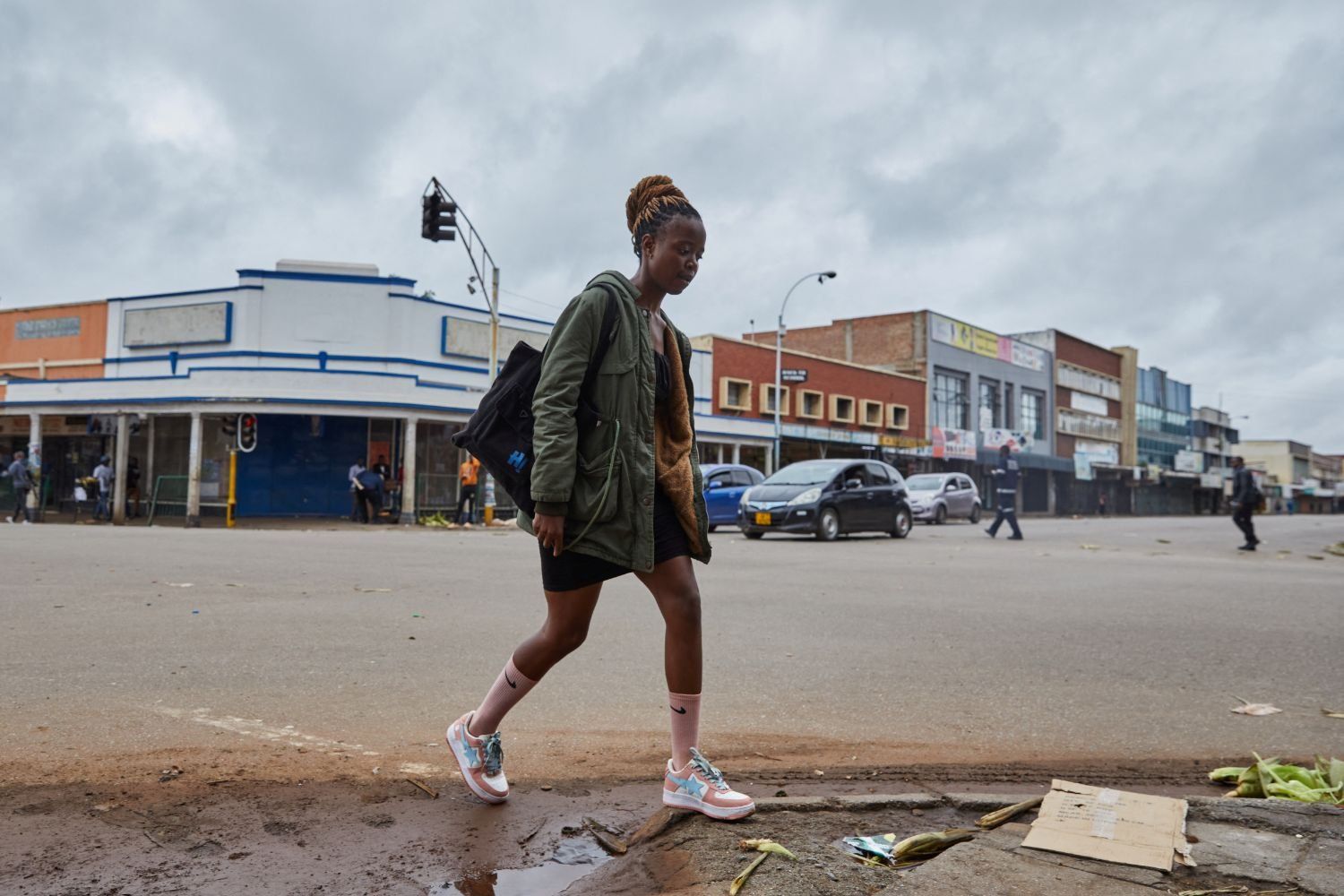On 45th Independence Anniversary, Zimbabweans Express Uncertainty, Frustration and Cautious Hope
OkayAfrica speaks to Zimbabweans from various walks of life to understand what independence means for them in 2025.
Zimbabwe's independence in 1980 marked the end of nearly a century of colonial rule and white-minority control. In 1965, a white-minority government, led by Ian Smith, issued a Unilateral Declaration of Independence from Britain, which the UK and international community refused to recognize and deemed illegal. This led to a brutal armed struggle by Black liberation movements, culminating in the 1980 elections won by Robert Mugabe’s ZANU-PF, marking Zimbabwe’s official independence. For many, it was a moment of hope, a chance for land reform, access to education, and economic empowerment for the Black majority.
Yet, for some, independence has not fulfilled this promise. “Zimbabweans attained independence, yes, but the common man has not enjoyed the freedom,” Bulawayo activist Mbuso Fuzwayo tells OkayAfrica. “The 45 years are not a reflection of the sacrifice that was made by people who laid down their lives for an independent Zimbabwe.”
Fuzwayo, who has faced multiple run-ins with the law due to his outspoken stance against the authorities, believes true independence means delivering on the promises of equality and opportunity, values that were central to the liberation struggle. He emphasizes the continued need to bridge the gap between the ideals of independence and the realities of Zimbabweans today.
Economic challenges and a new currency
Zimbabwe's post-independence journey is marked not only by political shifts but also by economic challenges that have tested the resilience of its people. High inflation, a struggling currency, and limited job opportunities remain pressing concerns for many citizens.
The country experienced one of the most severe hyperinflation episodes in history. In mid-November 2008, Zimbabwe’s inflation rate peaked at an estimated 79.6 billion percent month-on-month, with an annual rate reaching 89.7 sextillion percent. At the time, the country’s highest banknote, the 100 trillion Zimbabwean dollars, couldn’t cover a week of public transport. This hyperinflation led to the abandonment of the Zimbabwean dollar, as the country adopted foreign currencies like the U.S. dollar and South African rand for transactions.
In April 2024, Zimbabwe introduced the Zimbabwe Gold (ZiG) as a new currency to stabilize the economy and curb inflation. Backed by gold and foreign currency reserves, this currency symbolizes yet another effort by the government to establish economic independence. However, its reception has been mixed, reflecting decades of financial struggles.
“The new currency doesn’t help us as Zimbabweans because it only works in Zimbabwe,” says primary school teacher Candice Shoko. “The U.S. dollar does help, but versus the Zimbabwean Gold, inflation is always shooting.”
Shoko’s comments underscore the difficulty of aligning economic reforms with the needs of everyday citizens. For many Zimbabweans, true financial independence feels out of reach.
Harare-based writer Beaton Mabaso echoes these sentiments: “I don’t have a proper bank account and transact using mobile money mostly. Money in the bank simply loses value in service charges and transaction fees. Ever since the new currency was introduced, I have never transacted it. We read reports about how it's doing well and wonder where they get that view, because on the streets, the reality is different.”
In the words of the Born-Free
Musician, actor, and choreographer Paul ‘Mzoebanzi’ Mlauzi, known as Mzoe7, was born in 1991, 11 years after independence. His outlook is a bit different. He tells OkayAfrica that he has spent time looking for the positives amidst the negativity he sees.
“To me, independence means a lot because I am able to walk freely as a Black person in my country. I am able to walk to any building, any place, and any landmark without being asked where I am going because this is our land. And Zimbabwe is safe, you can walk in the afternoon, at night, without fear of getting robbed or mugged. Zimbabwe is that peaceful,” he says.
Mabaso, also born after 1980, says he sometimes feels disconnected from the story of independence. “We are lucky, they say, for not having witnessed the atrocities from before. Forty five years later, while I appreciate and honor the sacrifices that gave us the privilege we enjoy, it’s easy to not feel connected to it as the generation before.”
Political tensions and calls for change
In recent weeks, Zimbabwe’s political scene has grown tense. On March 31, protests erupted in Harare, with demonstrators calling for PresidentEmmerson Mnangagwa’s resignation amid plans to extend his term beyond the constitutional limit. The Zimbabwean constitution allows for a maximum two terms of five years each for president, but ZANU-PF is proposing extending Mnangagwa’s final term by two years, which will see him remain in office until 2030.
The proposed term extension might remind Zimbabweans of the late Mugabe, who was president for almost four decades. He stepped down in November 2017 at 93-years-old following military intervention and impeachment proceedings.
Blessed Geza, a liberation war veteran and former ZANU-PF member, has emerged as a vocal critic of President Mnangagwa. Geza has accused the president of corruption and nepotism. His calls for protests have been met with mixed reactions. While many citizens chose to stay at home during the March 31 demonstrations, at least 95 individuals were arrested for promoting public violence.
For citizens like Mabaso, the legacy of independence extends beyond symbolism; it requires tangible solutions to the challenges they face in their daily lives. Economic independence remains a key part of the nation’s ongoing journey toward realizing the aspirations of 1980.
Mzoe7 remains hopeful about a bright future for his country, especially in the creative space. “There's a lot of stories to tell about our people, about our culture, so there is a need for more investment in our arts, in our music, in our talents.”
- Zimbabwe Approves Law Which Will Criminalise Anti-Government Protests ›
- Zimbabwe's Deserted Streets Tell a Story of Disillusionment ›
- How Can Zimbabwe Strengthen Its Already Sliding New Currency? ›
